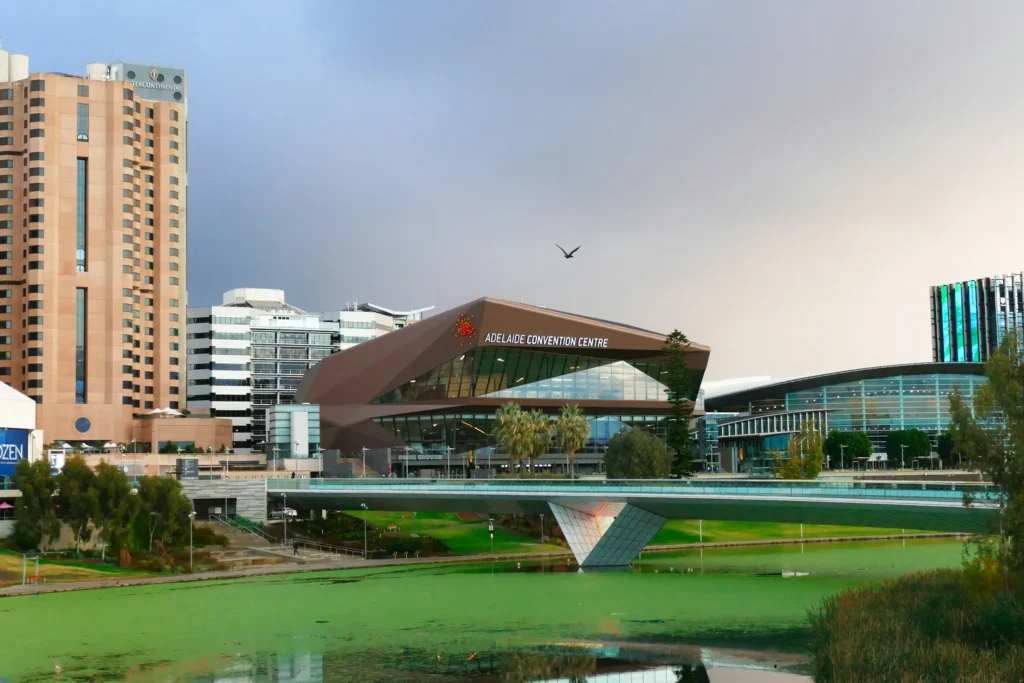
South Australia tech growth led by AI and innovation
South Australia tech growth led by AI and innovation

Market Overview
In South Australia, technology is key in enhancing government, private, and defence sectors. The government is prioritizing digital transformation to improve citizen services, investing in data analytics and cybersecurity. The private sector is embracing AI, IoT, and blockchain for operational efficiency, customer experience, and innovation. With government support, startups and tech companies are thriving in SA. The defence sector is strong in aerospace, shipbuilding, and cybersecurity, with a skilled workforce driving innovation. Through technology investment, SA is poised for economic growth and progress in key sectors, leading the way in digital transformation and emerging technologies.
Locally, the state of South Australia has chosen global healthcare information company, Dedalus, to digitize the patient record system used by the state ambulance service. The $23.5 million investment from the 2024-25 State Budget will fund the development and implementation of an electronic patient care record system, streamlining data entry for ambulance crews. A dedicated ePCR Clinical Team has been established within the SA Ambulance Service to oversee the transition. This advancement will bring ambulance patient care records into the 21st century, improving communication between paramedics and hospital staff. The ePCR devices will be implemented by June 2026, enhancing patient care across South Australia.
Federally, the Australian Government and NBN Co have announced a $3.8 billion investment to upgrade the country’s remaining fibre-to-the-node network, benefiting 622,000 homes and businesses. This includes a $3 billion equity investment from the government and $800 million from NBN Co, with the goal of providing access to faster broadband speeds to 95% of these premises. The upgrades are expected to boost the economy, create jobs, and support businesses over the next decade. The announcement coincides with the government’s commitment to finishing the NBN upgrade program and keeping the network in public hands. The upgrades are set to be completed by 2030, ensuring all Australians have access to high-quality broadband.
Over the past six months, AI has become a dominant theme in hiring conversations and business strategy meetings. In Adelaide, and more broadly, organisations are actively investing in AI upskilling and internal education, ensuring their teams can effectively work with automation tools and machine learning platforms.
AI is no longer experimental; it’s a practical tool being optimised for efficiency, cost savings, and productivity gains. With technology becoming more accessible, we’ve also seen increased focus on AI governance and ethics, as businesses look to regulate and responsibly manage AI adoption across teams.
Cybersecurity is another key area of attention. As AI systems are integrated into core business operations, companies are doubling down on AI-driven security protocols to protect sensitive data and ensure compliance in a fast-moving digital environment.
From a hiring perspective, demand continues to rise for AI and automation-related roles. Organisations are particularly interested in:
- Automation and PowerApps developers, especially within government and commercial sectors looking to streamline internal operations.
- AI agents and chatbot developers, as big tech and service-led companies roll out smart customer service and virtual assistant tools.
- Data scientists and machine learning engineers, where AI-driven decision-making has made predictive modelling a necessity.
- Environmental AI specialists, driven by Adelaide’s increasing focus on renewable energy and sustainability initiatives.
Candidate needs
- Meaningful work
- Great company culture
- Longer term contracts
Business needs
- Staff working from the office
- Cultural alignment
- Team synergy
The year ahead
Beyond the $101.8m to train welders, graduates and other skilled workers for the Adelaide-based nuclear-powered submarine construction, there is comparatively little earmarked for SA.
South Australia’s brain drain to other states will dramatically accelerate in the next four years, according to new figures contained in the federal budget.
Premier Peter Malinauskas has consistently talked up the reasons for interstate people to move to SA, pointing to job opportunities in areas such as defence and energy, plus trying to generate a feel-good PR factor through events such as the AFL Gather Round and LIV golf, yet the brain drain continues.
AI will play an even more integral role in shaping workforce needs and strategic investments across sectors in Adelaide and beyond. We expect to see a continued surge in hiring for AI-centric roles, not just in tech and government, but in health, energy, education, and financial services.
Key roles on the rise will include:
- Developers with expertise in automation platforms like PowerApps and low-code tools
- Specialists in conversational AI and agent-based systems for both internal and customer-facing applications
- Machine learning engineers to lead data strategy and AI model development
- AI-environmental science professionals to support green energy initiatives
Organisations will also continue refining their AI governance models, rolling out training programs to bridge internal skill gaps and reinforcing ethical frameworks around AI use.
Cybersecurity strategies will evolve in tandem, with more organisations embedding AI into threat detection, monitoring, and response.
Overall, Adelaide’s job market is entering a new phase where AI isn’t just a feature of innovative teams but a fundamental part of how departments function and deliver outcomes. For job seekers and employers alike, the pace of change will be fast, and the opportunities will be significant.